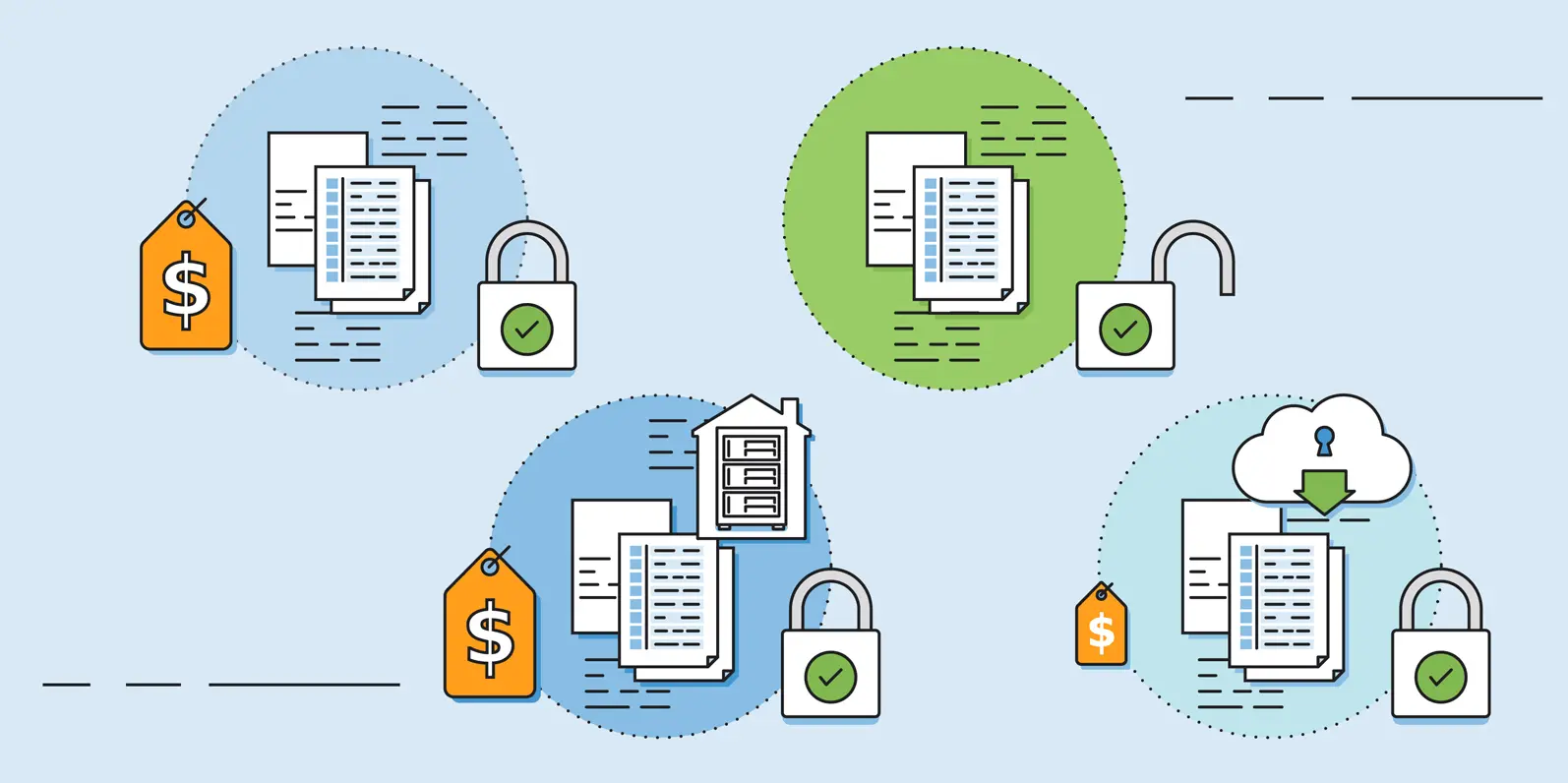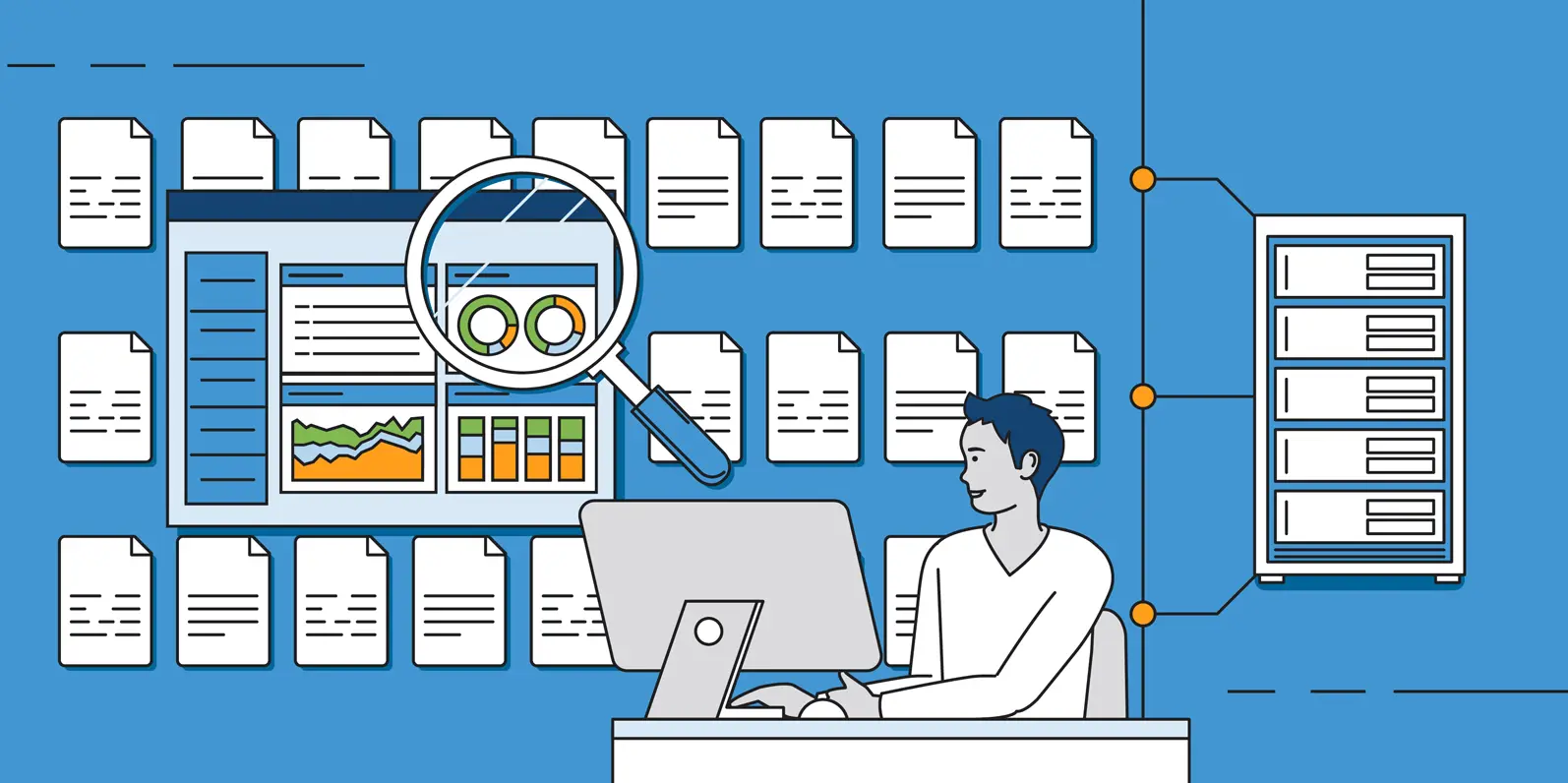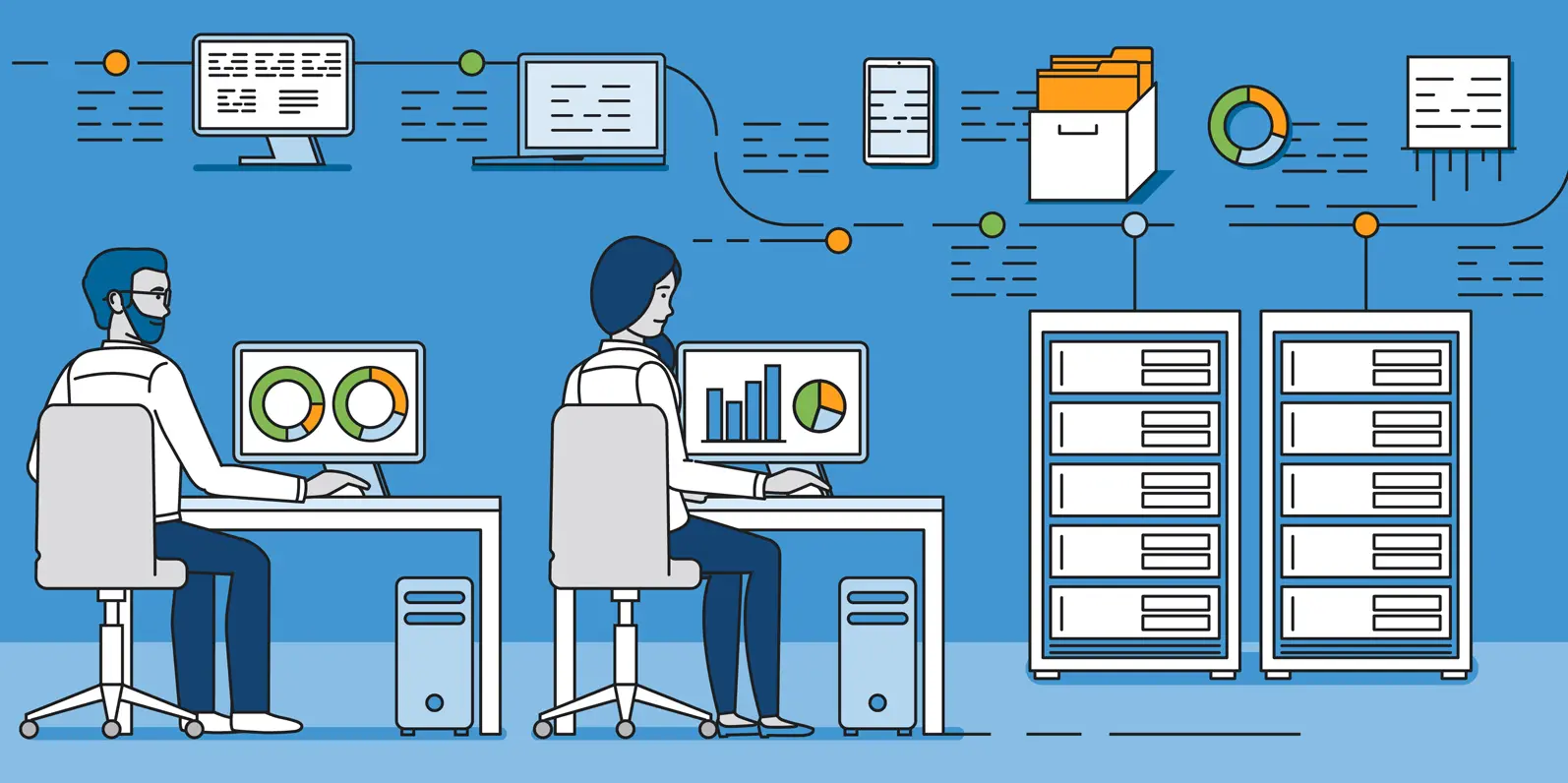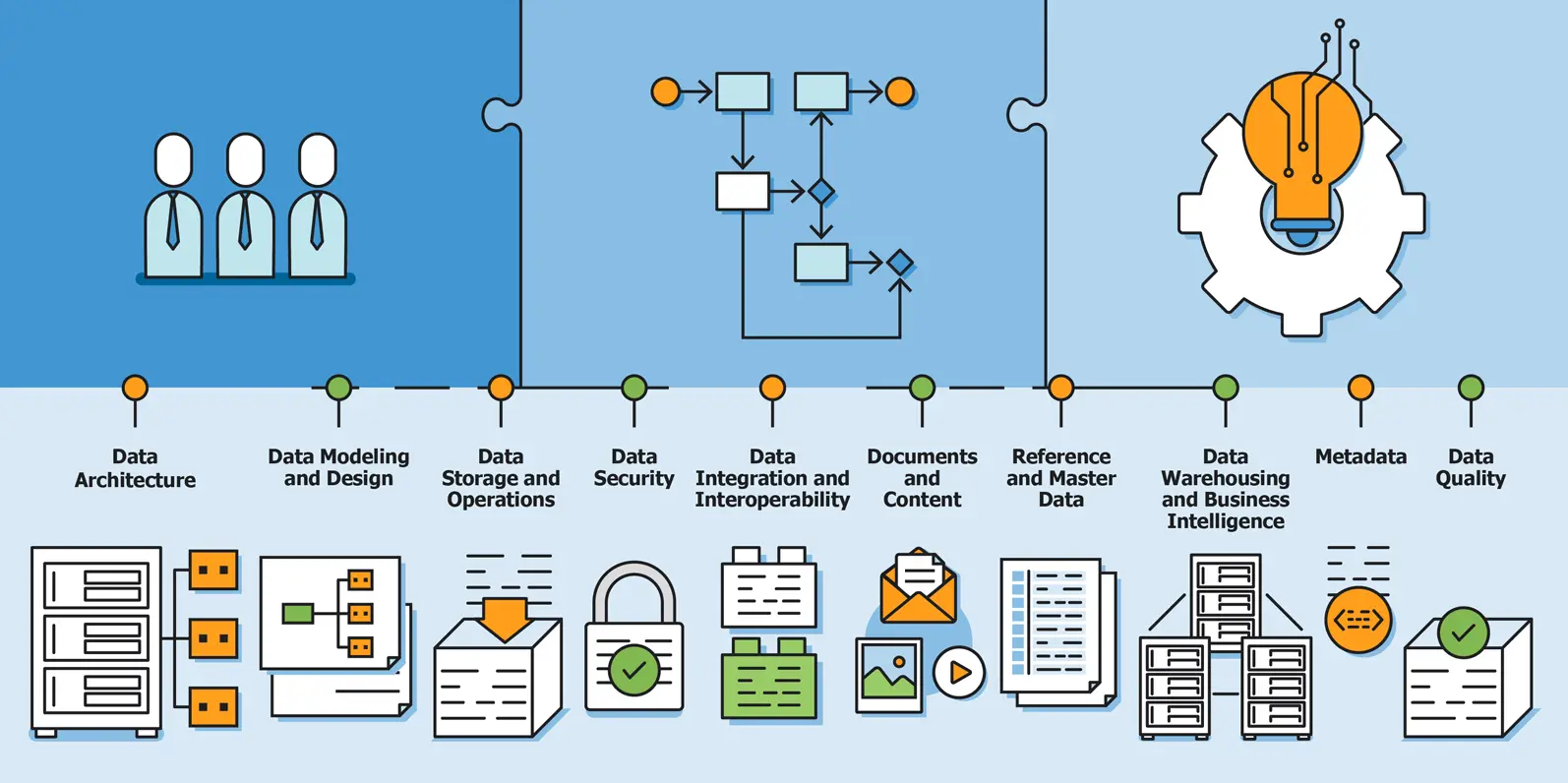Enterprise Data Management

As defined by Stitch, Enterprise Data Management “refers to a set of processes, practices, and activities focused on data accuracy, quality, security, availability, and good governance.”
Another official definition states that Enterprise Data Management “is the ability of an organization to precisely define, easily integrate, and effectively retrieve data” for internal and external application and communication.
In this section, you will learn about what enterprise data is, the interdependent components of Enterprise Data Management, how it benefits a business and some of the individual roles within a company that relate to EDM.
What Is Enterprise Data Management?

As you just read, Enterprise Data Management is the process of keeping track of all the data that a business collects and stores and ensuring that it is handled properly. Enterprise data is a term that is used to describe all of the data that moves through an organization; this includes structured data, unstructured data, metadata, master data, and so on.
A Data Governance Framework is one piece of overall Enterprise Data Management. In addition to how data is governed, there are many other components that comprise EDM as a whole. These include:
- Data Integration
- Master Data Management
- Data Quality Management
- Data Stewardship
- Data Warehousing
- ETL/ELT
As you can see, the Data Governance Framework plays a key role in informing the overall practice of Enterprise Data Management because there is a lot of overlap between the two. A good way to think about how they are related is to remember that a Data Governance Framework is the outline that informs the overall execution of Enterprise Data Management within an organization. Data governance are the laws; they are the policies and outlines of processes a business uses to maintain data. Once those are laid out, they provide the roadmap for EDM.
The key difference when it comes to Enterprise Data Management is that its scope goes beyond managing data; it also encompasses managing people in relation to that data. Through every stage of the data life cycle, team members are crucial to upholding the Data Governance Framework and all of the other facets of EDM.
Related post: Transforming an Insurer’s Data Management Strategy
The Benefits of Enterprise Data Management

Enterprise Data Management is the primary way of making sure that data is secure and available. Having a strategic approach to managing data provides businesses with a range of benefits that we have touched on throughout this guide.
As a refresher, managing data ensures that it is high-quality and easily accessible. This makes analyzing that data a more streamlined process that can inform decision making and provide important insight into business operations overall.
Managing data also helps keep it secure, which is vital to data privacy. It also helps keep data compliant under any regulations that the business must adhere to.
Finally, managing data ensures that it is consistent and can be easily integrated and applied. Efficiency and scalability are things that every business must keep in mind. Having a plan for Enterprise Data Management helps to promote this. This entire process is usually overseen by an enterprise data manager or any one of many different job titles in data management or security spheres.
Related post: Are You Ready for Data Privacy Compliance?
The Role of The Data Protection Officer

One of the most important parts of Enterprise Data Management is data privacy and regulatory compliance. The GDPR that you read about earlier imposed a lot of complex requirements on businesses all over the world and one of those requirements is bringing on a Data Protection Officer or DPO. A Data Protection Officer is an emerging security leadership role and they play an important part in overall EDM by overseeing the data protection strategy of a business. They are also the sole person in an enterprise that is responsible for making sure that it is compliant with all of the requirements of the GDPR.
This intricate piece of data privacy legislation actually outlines the responsibilities of the DPO, too. Here is a brief look at what those responsibilities include:
- Ensuring that all members of the company have a clear understanding of what the GDPR regulations are and how to remain compliant.
- Creating and executing training plans for all members that are involved in data processing for a company.
- Regularly auditing the company’s data management strategy for compliance.
- Addressing potential and existing problems with the company’s data security and data management strategies.
- Communicating with the GDPR Supervisory Authorities and acting as a mediator between these authorities and the company.
- Monitoring all of the data protection initiatives that the company implements and providing consistent feedback on their efficacy.
- Keeping robust records of any data processing activity that takes place at the company and making those records public when required.
- Being the chief informant to any and all data subjects so that they are properly informed about the data protection efforts at the company, their rights under the GDPR, and the ways that the company will use their data once it is collected.
- Assisting data subjects with exercising their rights under the GDPR in regards to having their data erased, updated, or otherwise altered.
- Ensuring compliance with any other regulations related to data privacy that the company may be subject to.
Currently, there are only a few requirements for the hiring of a DPO. They must not have a conflict of interest, they must be an expert on data protection law and proper data protection practices, and they must be easily accessible to all members of the company. It is predicted that further guidance on job qualifications will be published in the future, particularly how the DPO will interact with other important employees involved in the overall data management at a company.
Related post: Men’s Fashion Retailer Finds Best Fit for Data Privacy and Governance
Additional Key Roles in Enterprise Data Management
As evidenced by the scope of Enterprise Data Management, it isn’t something that just involves one individual in the company. Instead, there is a network of roles that depend on one another to properly execute the process for Enterprise Data Management. One that we briefly touched on is the role of an enterprise data manager. This is typically fulfilled by IT administrators or database administrators. They are the top of the EDM food chain and they are responsible for managing data through its entire life cycle.
However, data management has a lot of moving parts and typically is carried out by a large team of employees that answer to the enterprise data manager. We’re going to explore some of those key roles in this section.
Perhaps the most important role is that of Data Strategists. These employees are responsible for creating an effective strategy in regard to the application of data. Someone in this position will be tasked with determining a plan for the application of data within a business as well as creating strategies for data application based on the long term goals of a company.
Related post: Cloud Data Management Strategies
Another role that holds equal importance is that of a Data Governance Officer. This position can also be referred to as a Data Governance Specialist. Someone in this position is going to be the primary creator of the Data Governance Framework that will inform all other aspects of Enterprise Data Management within the company.
Data Architects are tasked with creating the technological programs or tools that help execute or enhance the procedures outlined in the overall data management strategy of a company. Similar to this role, there are also Data Engineers. These employees are the ones that are responsible for modeling, visualization, analytics, warehousing, and more.
The final roles we’re going to highlight include Data Analysts and Data Scientists. These are unique positions but they fulfill a similar function within a company. These types of professionals are responsible for examining all available data and analyzing it in an applicable way. Data Analysts will typically be responsible for creating reports and making conclusions based on those reports to present to higher team members, such as the data strategists. Data Scientists are generally tasked with experimenting with different data sets to lead innovation, test the viability of proposed strategies, and optimize the overall operations.
Related post: 4 Ways Your Data Chaos Will Hurt You

